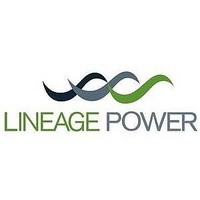JAW075F1 Lineage Power, JAW075F1 Datasheet - Page 11

JAW075F1
Manufacturer Part Number
JAW075F1
Description
CONVERTER DC/DC 3.3V 50W OUT
Manufacturer
Lineage Power
Series
JAWr
Type
Isolated with Remote On/Offr
Datasheet
1.JAW050F1.pdf
(16 pages)
Specifications of JAW075F1
Output
3.3V
Number Of Outputs
1
Power (watts)
50W
Mounting Type
Through Hole
Voltage - Input
36 ~ 75V
Package / Case
9-DIP Module
1st Output
3.3 VDC @ 15A
Size / Dimension
2.40" L x 2.28" W x 0.50" H (61mm x 57.9mm x 12.7mm)
Power (watts) - Rated
50W
Operating Temperature
-40°C ~ 100°C
Efficiency
79.5%
Approvals
CE, CSA, UL, VDE
Lead Free Status / RoHS Status
Contains lead / RoHS non-compliant
3rd Output
-
2nd Output
-
4th Output
-
Available stocks
Company
Part Number
Manufacturer
Quantity
Price
Company:
Part Number:
JAW075F1
Manufacturer:
LUCENT
Quantity:
27
April 2008
Thermal Considerations
Heat Transfer with Heat Sinks
The temperature at this location should not exceed
100 °C. The output power of the module should not
exceed the rated power for the module as listed in the
Ordering Information table.
Although the maximum case temperature of the power
modules is 100 °C, you can limit this temperature to a
lower value for extremely high reliability.
Heat Transfer Without Heat Sinks
Increasing airflow over the module enhances the heat
transfer via convection. Figures 21 and 22 show the
maximum power that can be dissipated by the module
without exceeding the maximum case temperature ver-
sus local ambient temperature (T
tion through 4 m/s (800 ft./min.). Note that the thermal
performance is orientation dependent. Longitudinal ori-
entation occurs when the long direction of the module
is parallel to the airflow, whereas transverse orientation
occurs when the short direction of the module is paral-
lel to the airflow.
Note that the natural convection condition was mea-
sured at 0.05 m/s to 0.1 m/s (10 ft./min. to 20 ft./min.);
however, systems in which these power modules may
be used typically generate natural convection airflow
rates of 0.3 m/s (60 ft./min.) due to other heat-dissipat-
ing components in the system. The use of Figure 21 is
shown in the following example.
Example
What is the minimum airflow necessary for a JAW075F
operating at V
tudinal orientation, and a maximum ambient tempera-
ture of 55 °C?
Solution
Given: V
Determine P
Determine airflow (v) (Use Figure 21.):
Lineage Power
I
T
P
v = 1.6 m/s (320 ft./min.)
O
A
I
D
= 15 A
= 55 V
= 55 °C
= 12.5 W
D
I
(Use Figure 20.):
= 55 V, an output current of 15 A, longi-
A
) for natural convec-
(continued)
(continued)
36 Vdc to 75 Vdc Input, 3.3 Vdc Output; 33 W to 50 W
Figure 19. JAW050F Power Dissipation vs. Output
Figure 20. JAW075F Power Dissipation vs. Output
14
13
12
11
10
10
9
8
7
6
5
4
3
2
9
8
7
6
5
4
3
2
1 2
0
Current at 25 °C
Current at 25 °C
1
3
V
V
V
2
I
I
I
4
= 75 V
= 55 V
= 36 V
OUTPUT CURRENT, I
OUTPUT CURRENT, I
5
V
V
V
3
I
I
I
= 75 V
= 55 V
= 36 V
6
4
7
8
5
9 10 11 12 13 14 15
6
O
O
7
(A)
(A)
8
9
8-3348 (F)
8-3349 (F)
10
11








